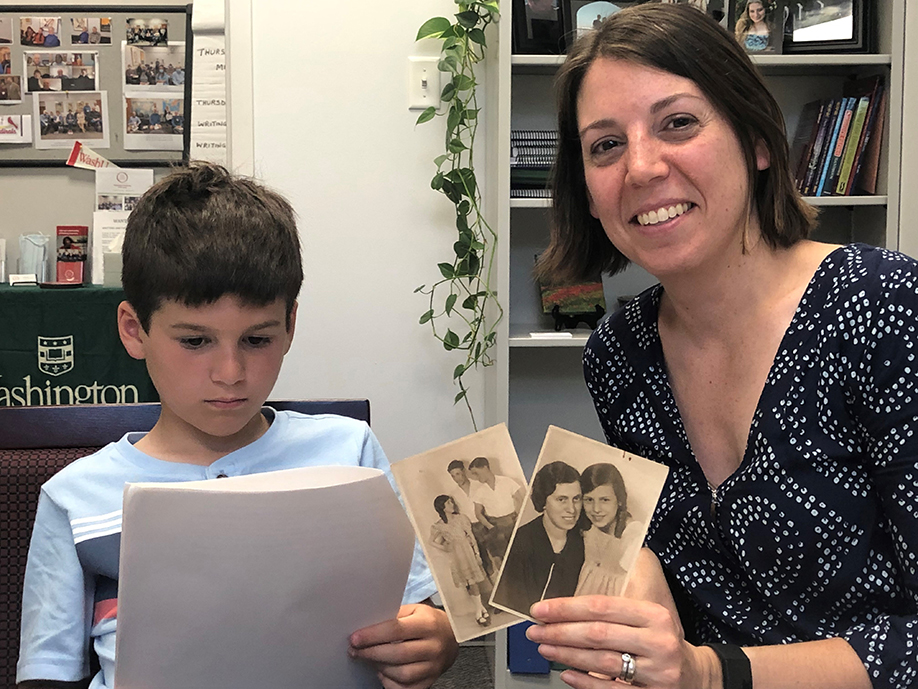Janet Gillow, the newly appointed director of the Osher Lifelong Learning Institute (OLLI) at Washington University, was clearing out a storage room when she made an amazing discovery. There, stuffed between old newsletters and course catalogs, were the memoirs and photographs of Holocaust survivor Lilo Fauman.
“I was not prepared for the horror of November ninth, nineteen-thirty-eight. Kristallnacht. The night of broken glass,” read one essay. “At three o’clock in the morning, the telephone rang to inform my father that our large and gorgeous synagogue was on fire, one that was set by the Storm Troopers.”
Setting out to learn more about the author, Gillow discovered that Fauman had been a devoted student of the institute, where students ages 50 and older take and lead classes on topics ranging from French literature to plant physiology. In 2000, Fauman had enrolled in “Telling Your Story,” a popular writing class. She would die four years later at the age of 80. During her search, Gillow also discovered she knew one of Fauman’s survivors, granddaughter Laura Horwitz.
“The internet is a powerful thing,” Gillow says. “I immediately reached out to Laura so I could restore this bit of history to Lilo’s family. She wrote with such poignancy about her family’s escape. And to think these photos made the trip from Nazi Germany to America.”

Horwitz and her son, Jonah, soon visited Gillow to collect the artifacts. Horwitz already had read some of the essays; other stories, like the one on Fauman’s first day at a Detroit high school, were new. Fauman recounts the sting of being called “the refugee” and the kindness of a teacher who secured her a college scholarship.
“The teacher, Mr. Pettis, comes to me and says in German, ‘Miss Stark, Welcome to America,’” wrote Fauman, whose maiden name was Stark. “I could have kissed him.”
“I know a lot of her stories backward and forward; they have been foundational in shaping who I am,” Horwitz says. “But the beautiful thing about having them written is that I can share them with my kids. These memoirs bring my grandmother to life; I read the words and hear her voice.”
For Gillow, the discovery reaffirmed the power of OLLI. Launched in 1995, the institute serves some 600 members and is one of 123 institutes across the nation that receives funding from the Bernard Osher Foundation. As director, Gillow, AB ’91, MSW ’95, hopes to enroll more WashU alumni and retirees as well as attract a more diverse student body.
“Our motto at the Osher Lifelong Learning Institute is that curiosity never retires,” Gillow says.
Gillow joined OLLI because of her own grandmother, who, like Fauman, never stopped learning. Back when Gillow was a WashU undergraduate, she and her grandmother enrolled together in a University College class about St. Louis history. It was, for both of them, one of the best experiences of their lives.
“She never stopped talking about that class,” says Gillow, who earned an MSW degree from the Brown School and later served as the school’s director of professional development programs. “So, when people say, ‘OLLI saved my life,’ they mean, ‘I was home, alone. Now I’m making friends and learning new things.’”


